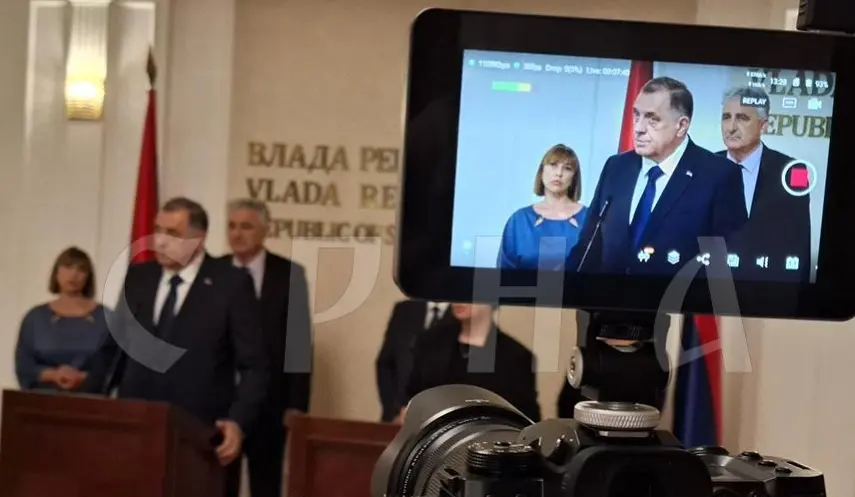DODIK: UPRISING DETERMINED POLITICAL FATE OF THE BALKANS
Republika Srpska - Nevesinje Uprising
07/01/2025
14:10

BANJA LUKA, JULY 1 /SRNA/ – The President of Republika Srpska Milorad Dodik said today in Banja Luka that the Nevesinje Uprising was an event that determined political fate of the Balkans.
Dodik stressed that freedom is sacred for the Serbian people and that this notion has only grown stronger in their perception and will.
He underlined the great historical significance of this event, which is jointly commemorated by Republika Srpska and Serbia.
"During the Ottoman Empire and its oppression on our lands, which lasted around 400 years, Serbs in BiH alone launched about 140 uprisings," Dodik said at a press conference.
He called on the faithful to come to the commemoration of this event on Sunday, July 6, in Nevesinje.
The central ceremony marking the 150th anniversary of the Nevesinje Rifle Uprising will be held on Sunday, July 6, in Nevesinje.
The First Nevesinje Rifle was an uprising that began in the village of Krekovi in the municipality of Nevesinje on July 9, 1875, against Ottoman rule and soon spread across the entire territory of BiH, with support from Serbia and Montenegro.
This eventually turned into the Serbian-Turkish war, leading to the Berlin Congress of 1878, at which Serbia and Montenegro gained independence and territorial expansion, while Austro-Hungary occupied BiH for 30 years.
The Second Nevesinje Rifle, known as the Ulog Uprising, broke out in January 1882 when insurgents attacked an Austro-Hungarian gendarmerie station in Ulog in response to the enactment of the so-called Military Law imposing mandatory military service of young men from BiH.
The Nevesinje Anti-Fascist Uprising refers to the armed resistance against the Ustashas on June 3, 1941, in the village of Drežanj, following the massacre of 27 people in the village of Udružnje near Nevesinje.

SERBS IN TEARS AND FEAR OVER OWNERSHIP OF ORTHODOX CEMETERIES AND CHURCHES

CVIJANOVIĆ DEMANDS ACCOUNTABILITY FOR SHAMEFUL CONCERT IN ŠIROKI BRIJEG

OSTOJIĆ URGES BiH AND EU TO ACT OVER GLORIFICATION OF FASCIST IDEOLOGIES





